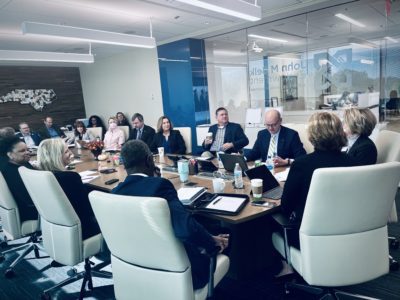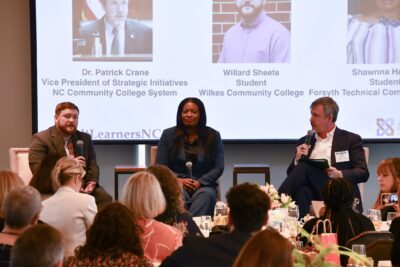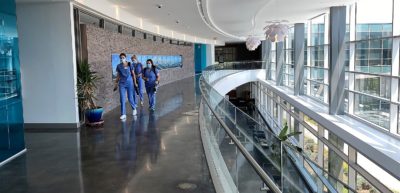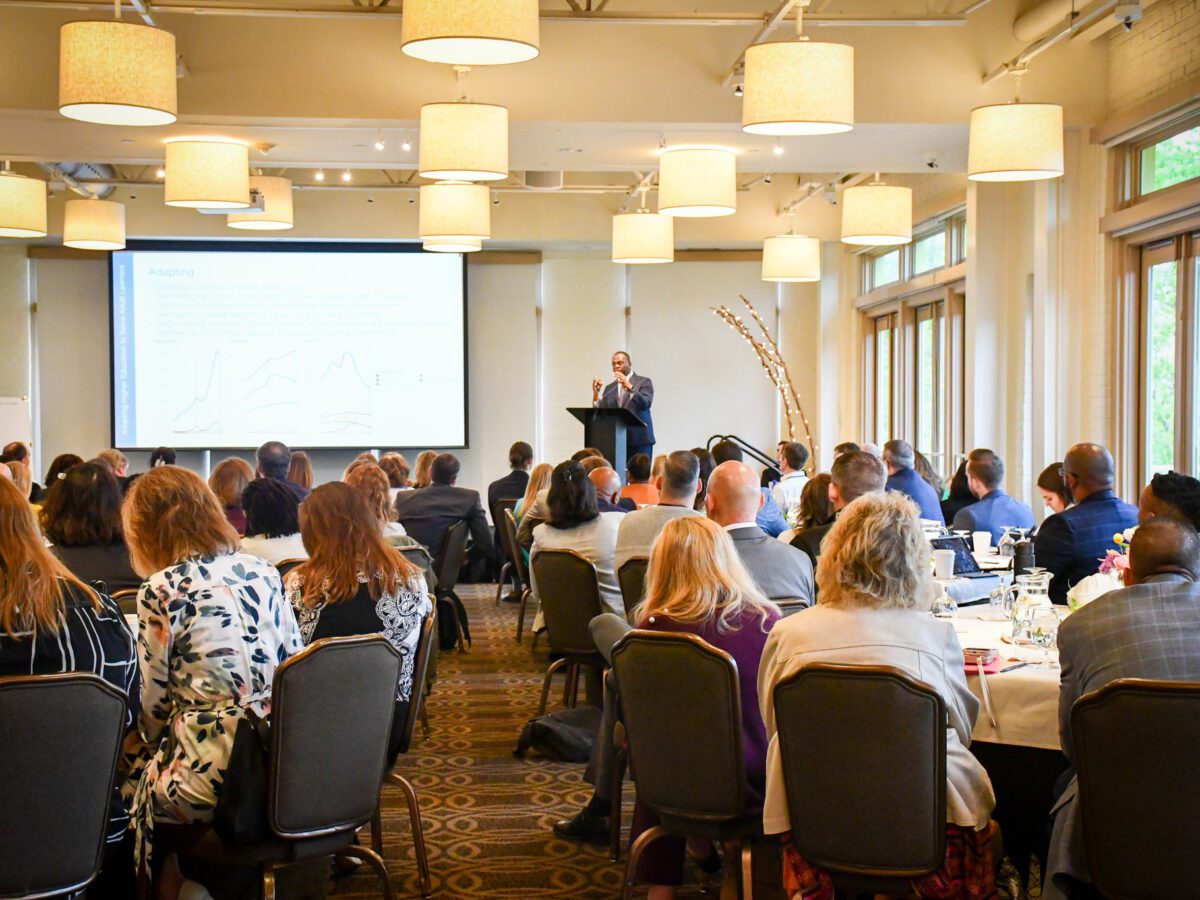
|
|
Education stakeholders and leaders from 40 of North Carolina’s 58 community colleges gathered in Greensboro April 3rd and 4th for the second adult learner convening hosted by the John M. Belk Endowment (JMBE) and EdNC. Leaders reflected on how higher education can better serve adult learners, or students between the ages of 25 to 44.
One goal of gathering in the same space is to learn together, said MC Belk Pilon, JMBE’s president and board chair. The learnings come at a time when it’s becoming increasingly imperative that if postsecondary institutions are going to meet the needs of their students, they’re going to need to make changes.
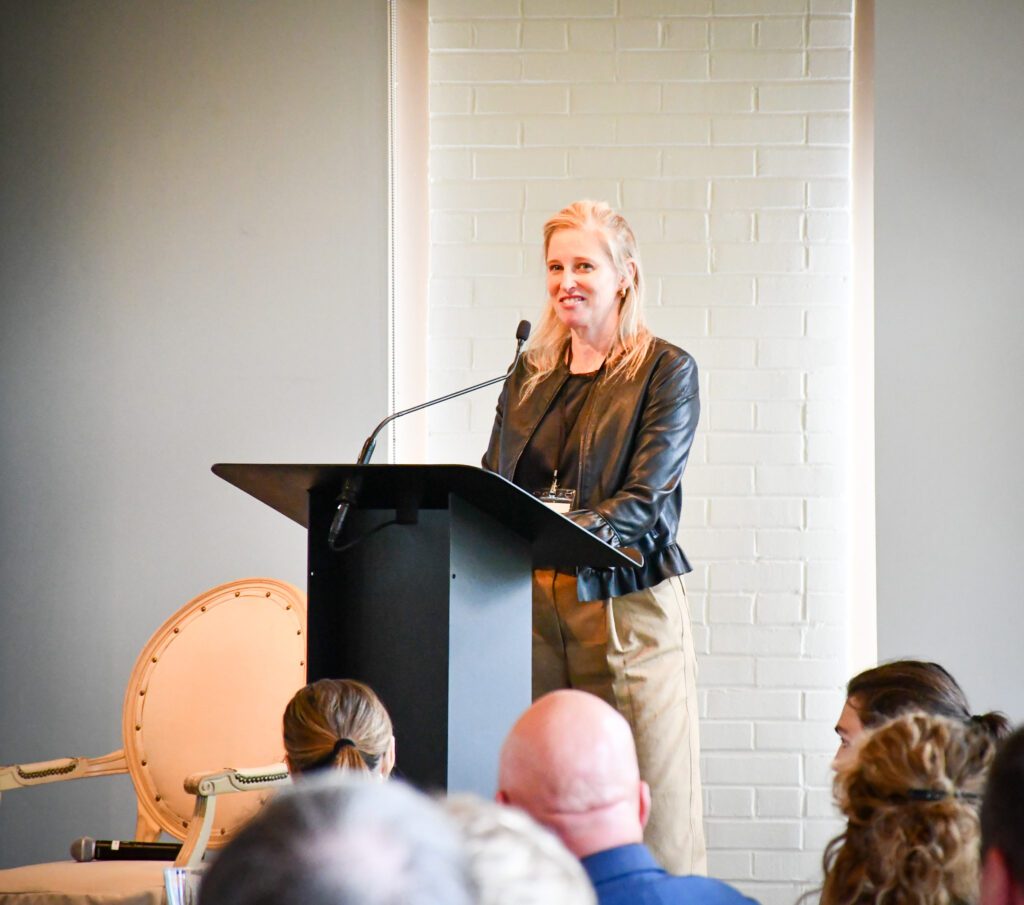
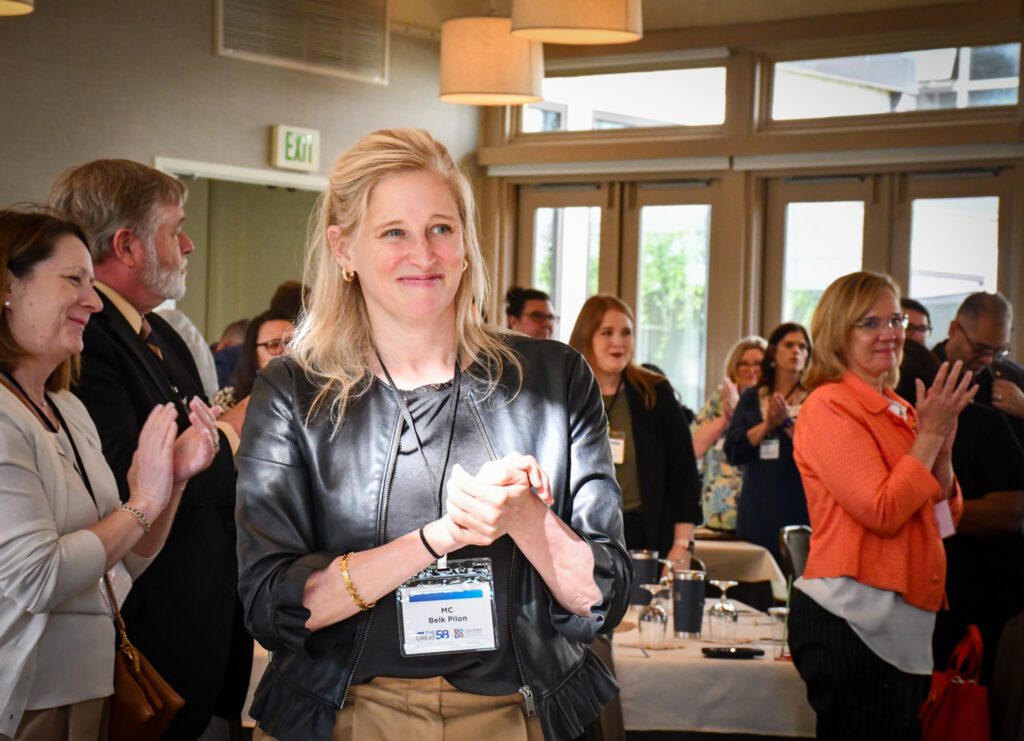
“Higher education wasn’t built for adult learners, and yet adults need higher education,” Pilon said. “So there are changes that we have to make and changes that many of you (community colleges) are making right now and have been making for the last few years.”
One way institutions are adapting to better serve adult learners is by asking them directly: “What is it that you need to be successful?”
Dr. Pamela Senegal, president of Piedmont Community College (PCC), shared during the opening session how PCC had stumbled around the idea of serving adult learners for years.
“We designed a script that didn’t flow well, that didn’t connect well with adults,” Senegal said. “We shared things with them that we thought they needed that they were not interested in.”
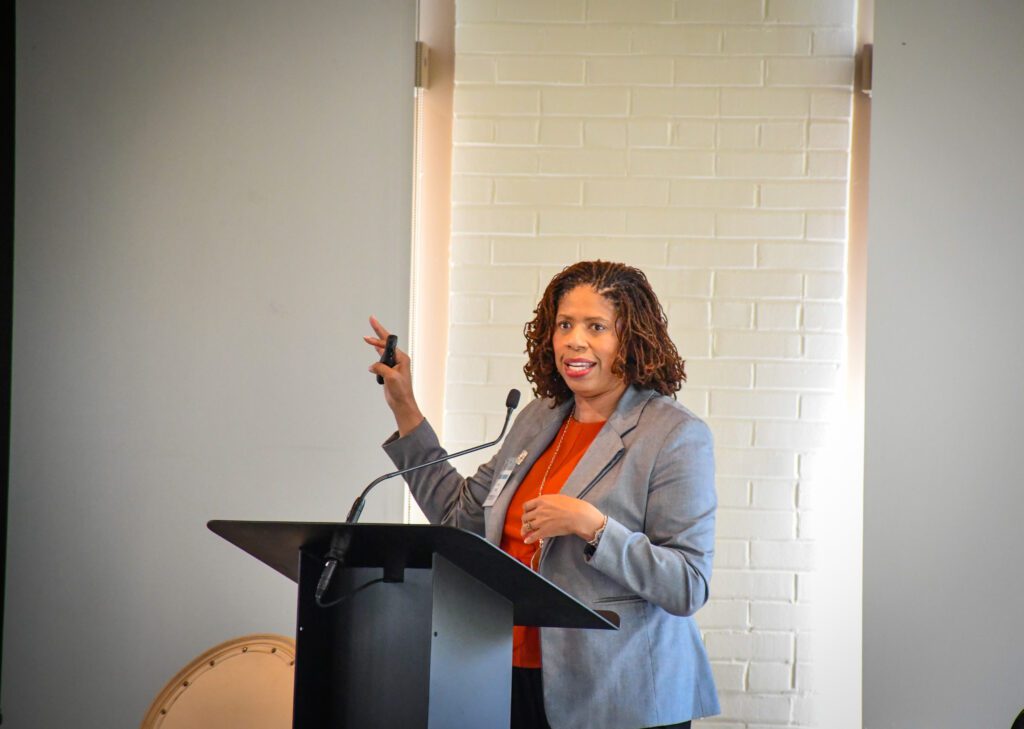
To remedy the problem, PCC leaders created a survey asking adult learners about work, educational goals, and what supports they needed.
The survey revealed that many adult learners were weighted with additional responsibilities, like being a caregiver, while also working full-time and attending classes. Students noted their need for more HyFlex class options, a course model that gives students the ability to choose how they attend each class session whether online or in person. The survey also revealed that adult learners prefer to talk to someone directly about their educational plans, balancing work and school, and career goals.
Senegal said the survey, along with briefings about how to better serve adult learners, have been a launchpad for the changes the college is making.
Before wrapping, Senegal welcomed four adult learners from Piedmont Community College. As Pilon noted in her welcome remarks, students are why we do what we do and the reason why everyone was gathered at the convening.
“These adult students are putting everything on the line to go to our state’s community colleges, and they are doing so by the power of hope. They want to earn a credential that’s going to change not only their lives but their family’s lives, and that’s why we couldn’t think of a better way today than to start a conference off with your voice and your story and your journey.”
MC Belk Pilon, JMBE president and board chair
Sign up for Awake58, our newsletter on all things community college.
What does it mean to be an adult learner?
For attendees, hearing from adult learners was a highlight from last year’s convening, and this year was no different.
Each of the four adult learners shared how circumstances along their life paths had derailed them from higher education – everything from being laid-off from a 37 year-long career to debilitating health issues to financial barriers.
Going back and staying in school was no small feat for the four PCC students.
For some, finances were the biggest issue, while others said being in school while balancing work and daily life responsibilities created obstacles. Several students had significant losses in their lives, exacerbating an already challenging endeavor.
But they stuck it out, and they’re all glad they did.
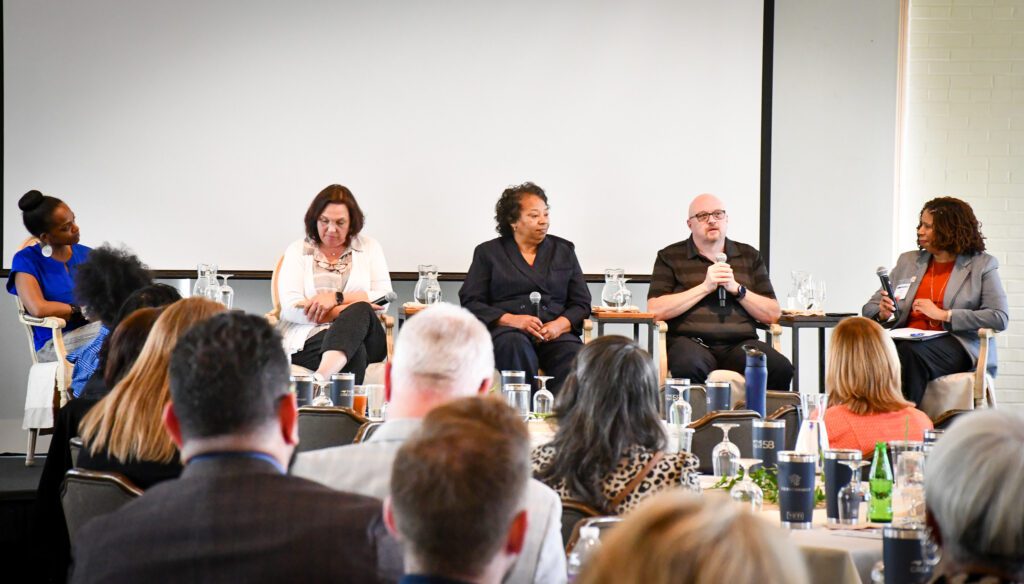
“You just keep going,” Traci Ashely, PCC adult learner, said. “You don’t stop. You just keep going.”
Despite the challenges of returning and staying enrolled, the students are grateful for their experiences at Piedmont Community College. They shared advice for their younger selves.
PCC adult learner Deborah Woody would tell her younger self to dream.
“If you can dream it, if you believe it, and you can receive it – the sky’s the limit. There’s no limit to how high you can go. And if it’s something out there that you want, just reach out and grab. It all depends on you and your determination.”
Deborah Woody, PCC adult learner
For Tommy Williams, it was all about letting go of doubt.
“Stop doubting yourself. Stop beating yourself up over stuff you can’t change.”
Tommy Williams, PCC adult learner
The students also had advice for educational leaders in the room as colleges navigate restructuring systems to meet adult learners’ needs.
For starters, adult learners need a real person to help guide them through enrollment and beyond. Whether it be success coaches or more intentional advising, many adult learners appreciate the guidance.
“I am not ashamed. I will let you hold my hand. It doesn’t bother me at all,” said Ashley.
As for marketing, do more of it, PCC’s adult learner Kristina Williams said. Williams even suggested ramping up marketing during specific times of the year like tax season.
Woody said information sessions or seminars would be helpful for those who are considering going back to school, noting that a lot of people may not understand the contents of the print material being delivered to them.
Tommy Williams said connecting with local Facebook groups is another way for community colleges, particularly in rural areas, to get the word out.
Woody had one more piece of advice for the leaders in the room:
“It’s always good to get as much as you can, to learn as much as you can. Because if you’re learning all that you can, you can help someone else along the way.”
Deborah Woody, PCC adult learner
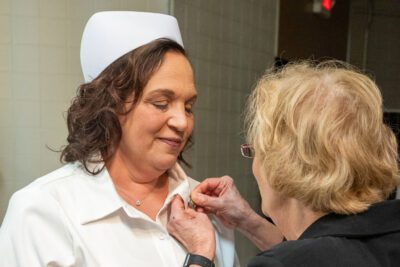
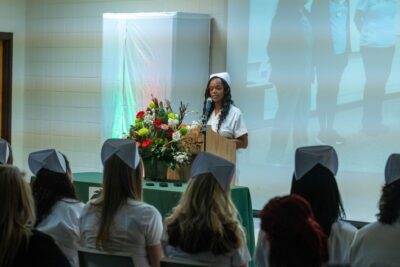
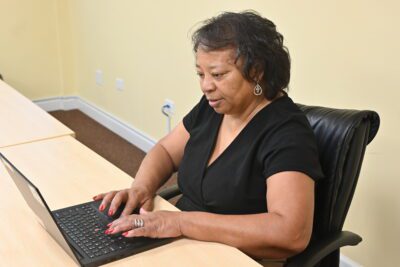
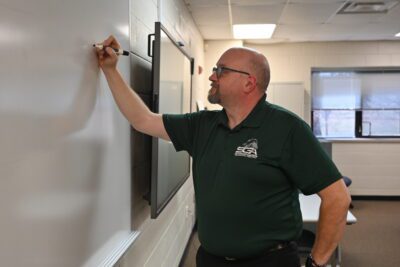
Sustaining momentum and adapting to serve
In 2021, JMBE, with the help of education partners, launched NC Reconnect — a pilot program aimed at reaching and reengaging adult learners who had previously stopped attending a North Carolina community college before earning a credential. The program began with five of the state’s community colleges and has grown to include a total of 20 colleges.
Since then, community college leaders and partners have continued to reflect and share how they’ve updated antiquated systems and processes to better serve their campuses and communities.
“The work (NC Reconnect) really is about dismantling structures that really never made much sense to begin with,” said Mike Krause, JMBE senior advisor.
Dr. Audrey J. Jaeger, executive director of the Belk Center for Community College Leadership and Research, kicked off the first breakout session with presidents from three NC Reconnect colleges who discussed how their colleges have been able to sustain momentum around adult learners.
Because adult learners face unique challenges, community college leaders are tasked with thinking differently about how to alleviate some of those challenges.
For Durham Technical Community College president JB Buxton, it meant a shift in thinking.
“How do we rethink the culture of our internal operations for an adult learner who does not have much time?” he asked.
Those shifts have led Durham Tech to offer eight-week terms for the majority of their courses, change enrollment operating hours to better accommodate students, and implement a customer relationship management (CRM) system to track students through the enrollment process and beyond.
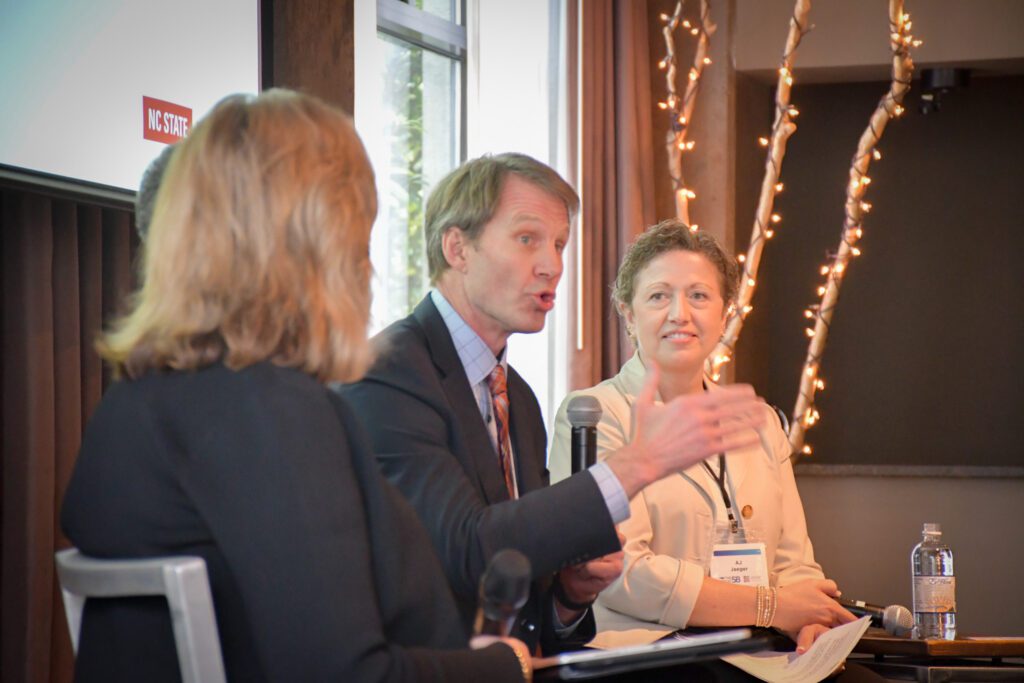
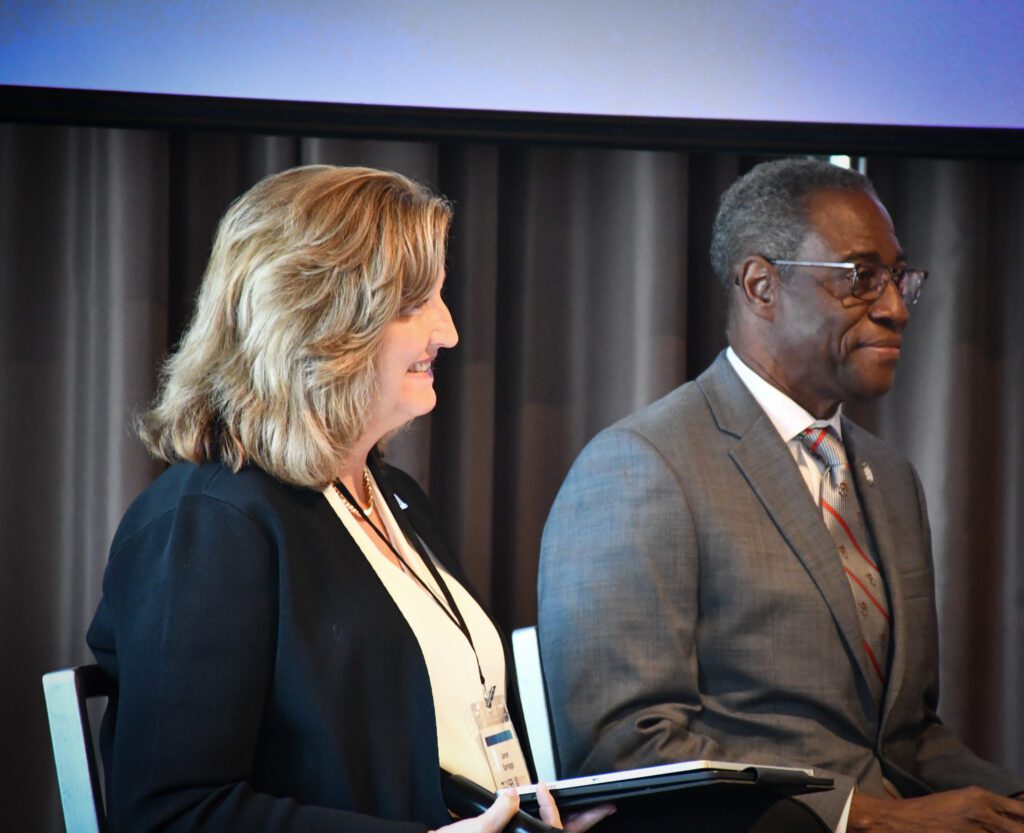
Like Senegal, Dr. Janet Spriggs, president of Forsyth Technical Community College, said adult learner voices have been instrumental in their strategic planning.
“We can’t understand how to create a system or a process or an ecosystem to serve adult students better or any student better until we center their voice in the design process,” she said.
Forsyth Tech leaders did not make any strategic decisions about revamping their systems until they had adult learner voices in their data mix.
Once you start making these changes, it’s important to integrate the adult learner work into the whole college, said Pitt Community College president Dr. Lawrence Rouse.
That looks like training and workshops to help faculty and staff understand the work and the impact it has on all areas of the college.
But the work goes beyond the institution.
Dr. Kenyatta Lovett of Education Strategy Group discussed the importance of outside partnerships when it comes to serving adult learners. Lovett said he has seen success with distributive advising and supports.
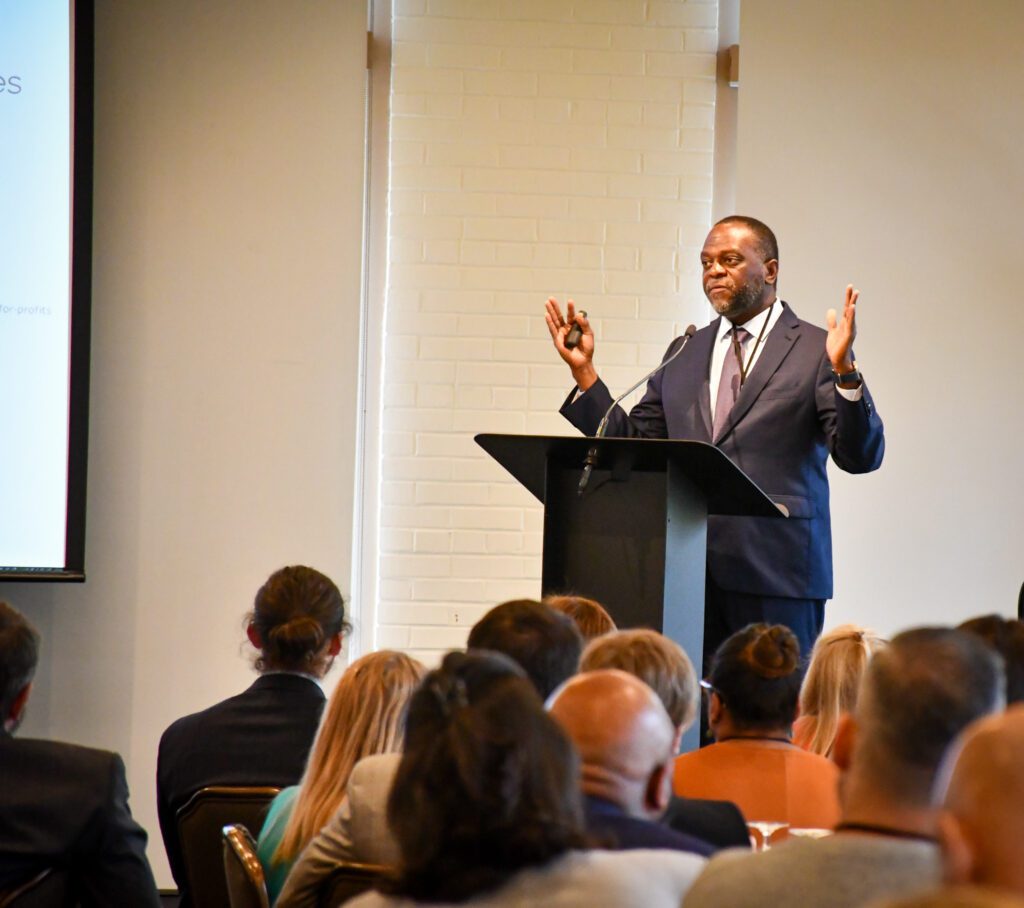
Distributive advising occurs when an individual who is not a college employee becomes the first layer of support and encouragement to someone interested in finishing a college credential. Some states, including Tennessee, are calling those that provide this type of advising ambassadors, and they serve as active players in an adult learner’s support network.
Ambassadors connect interested individuals to college representatives or online resources to help them develop a plan for returning to college.
“That’s really the first step in creating that (distributive advising) culture, beyond just the institution and even beyond the programs,” Lovett said.
Community college presidents reflect on what’s next
If you don’t know where to start, start with one. Echoing words from Pilon, Dr. Shelley White, president of Haywood Community College, said just find one adult learner to work with.
“I think that’s the charge for us all,” White said. “If we’re all focusing on that one student, that one student in front of us … think of the collective impact that we’ll have across the state.”
Because changing one student’s life has the potential to impact many.
“I would just like to say to all of you, education is important. And regardless of who you’re giving it to, it’s something that someone will always cherish. It’s something that they will need to continue in this life and be the best that they can be.”
Deborah Woody, PCC adult learner
Photo highlights
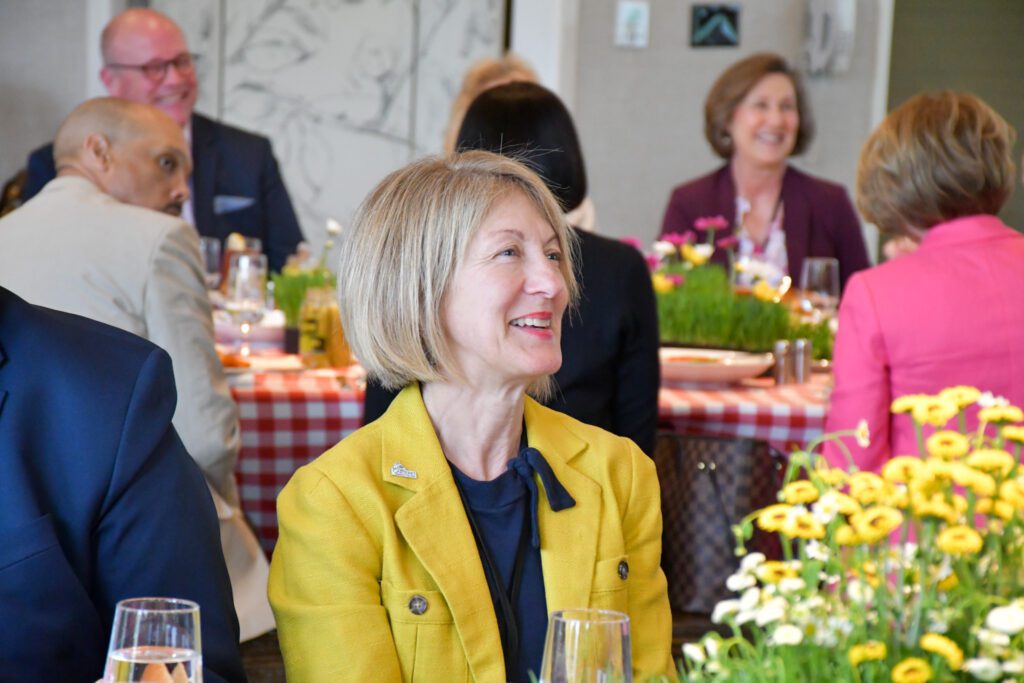
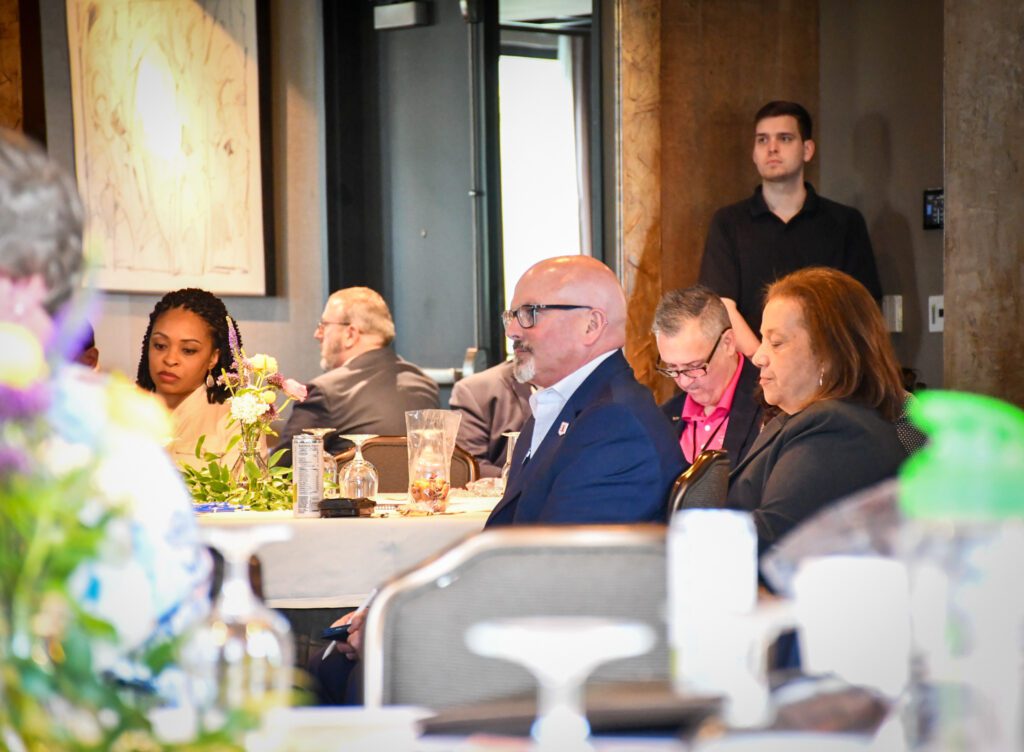
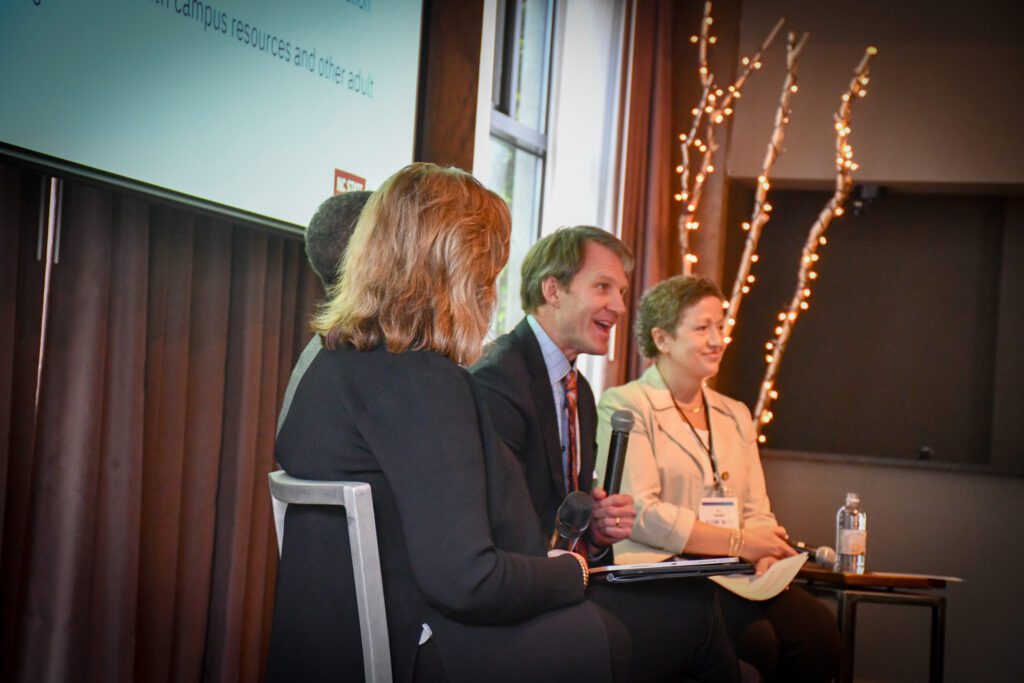
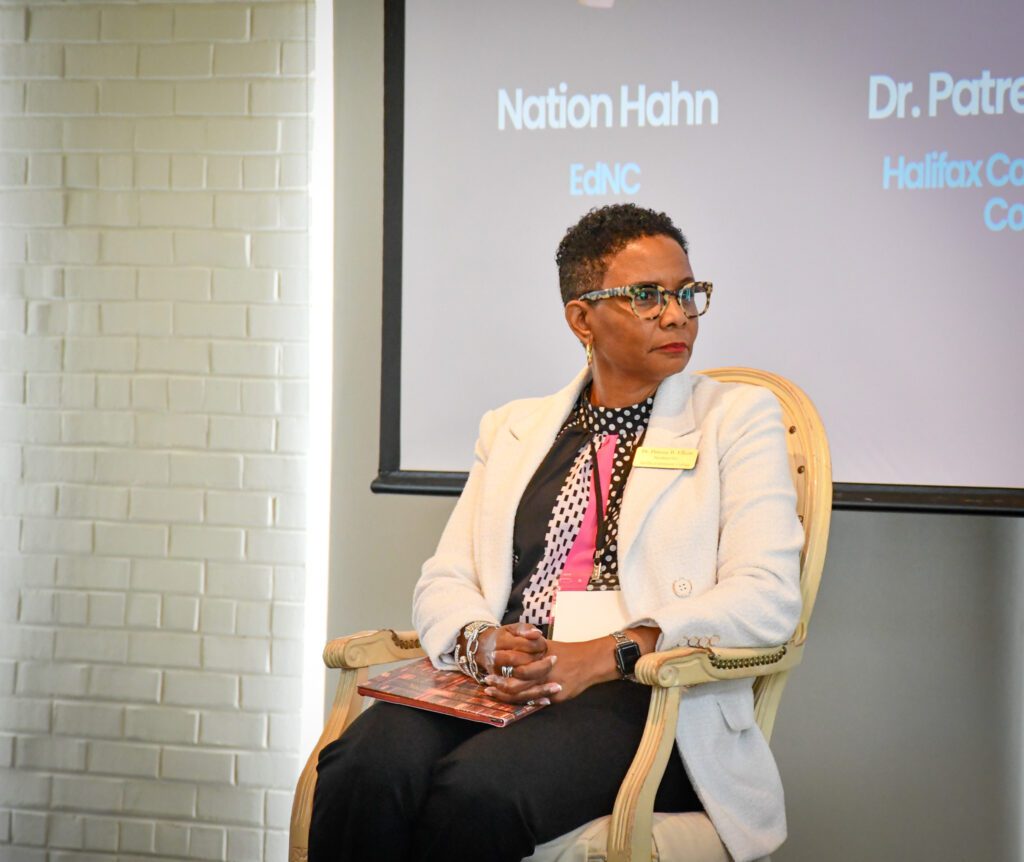
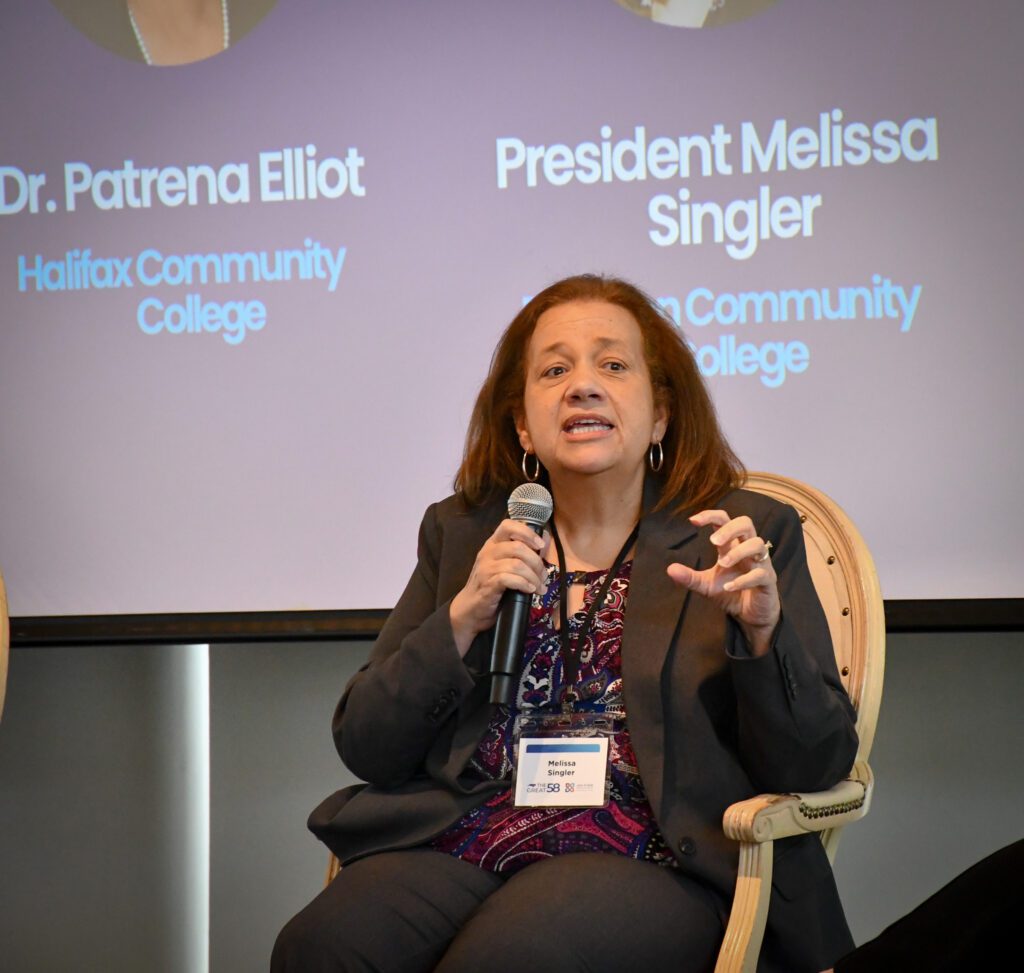
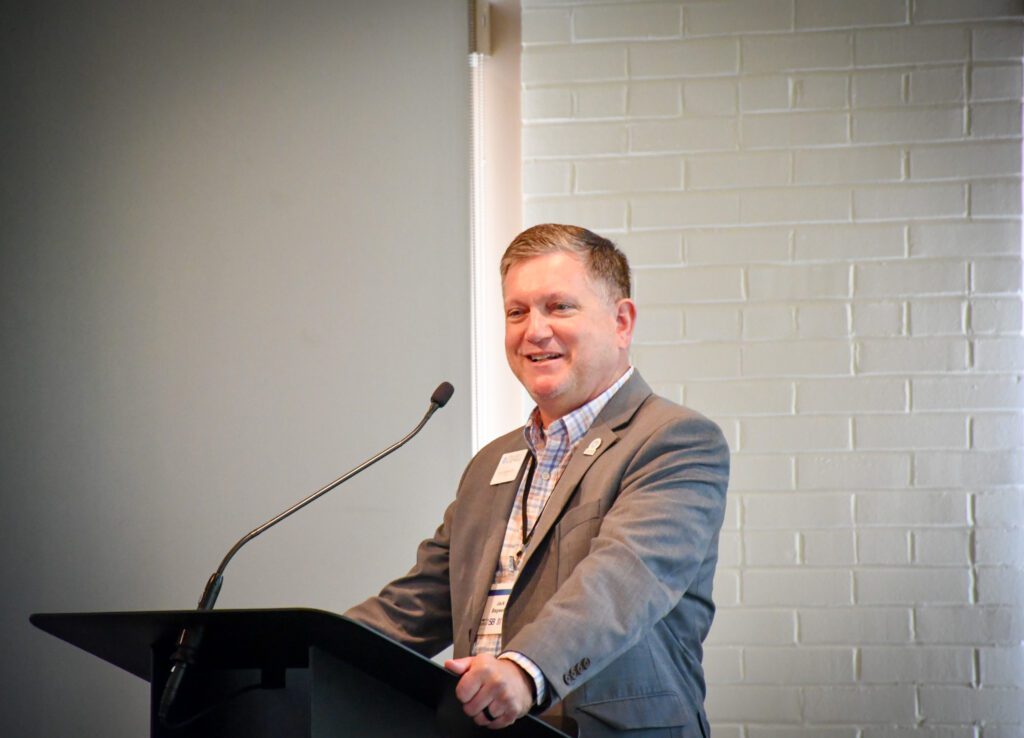
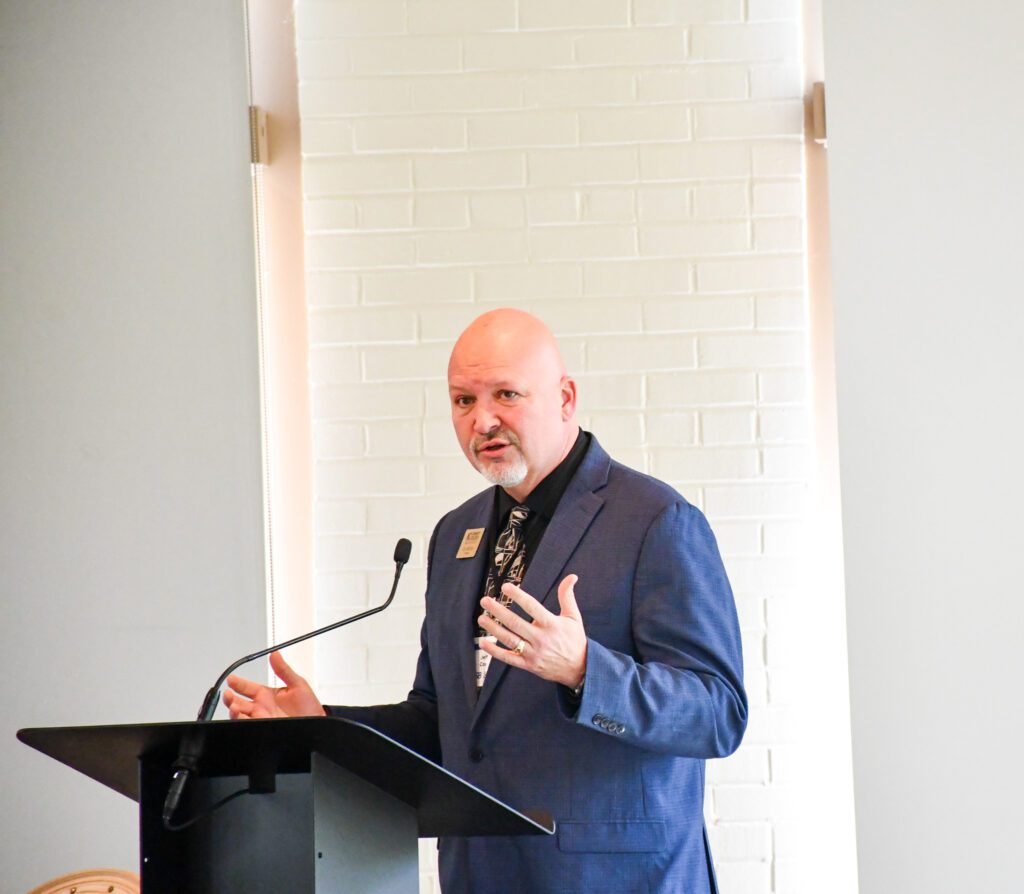
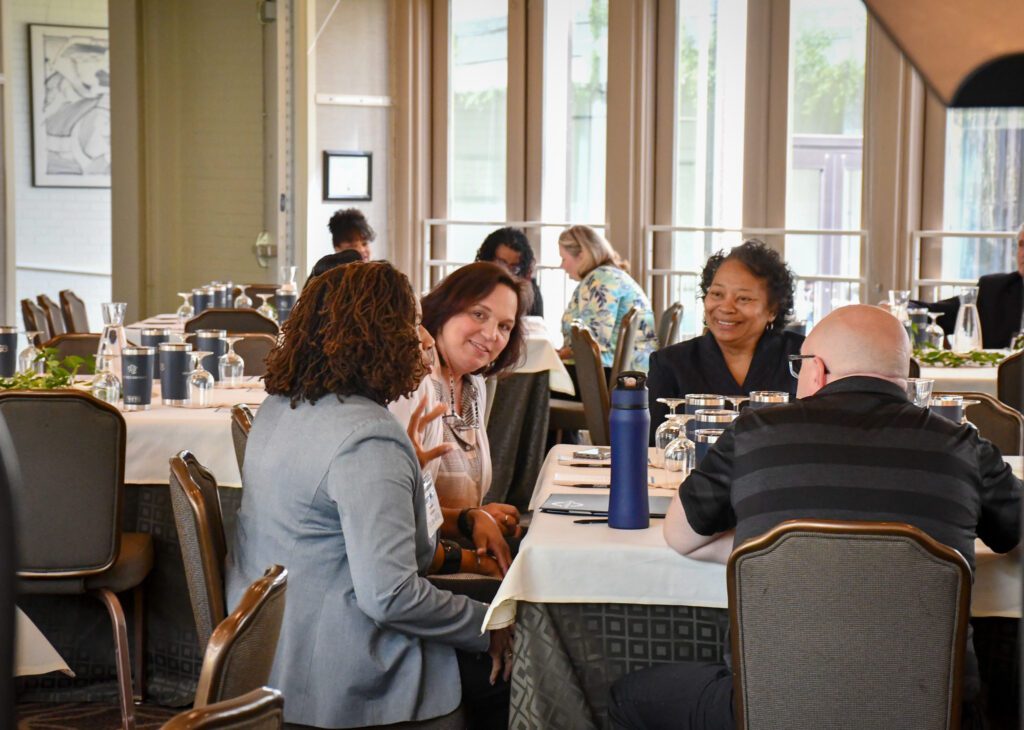
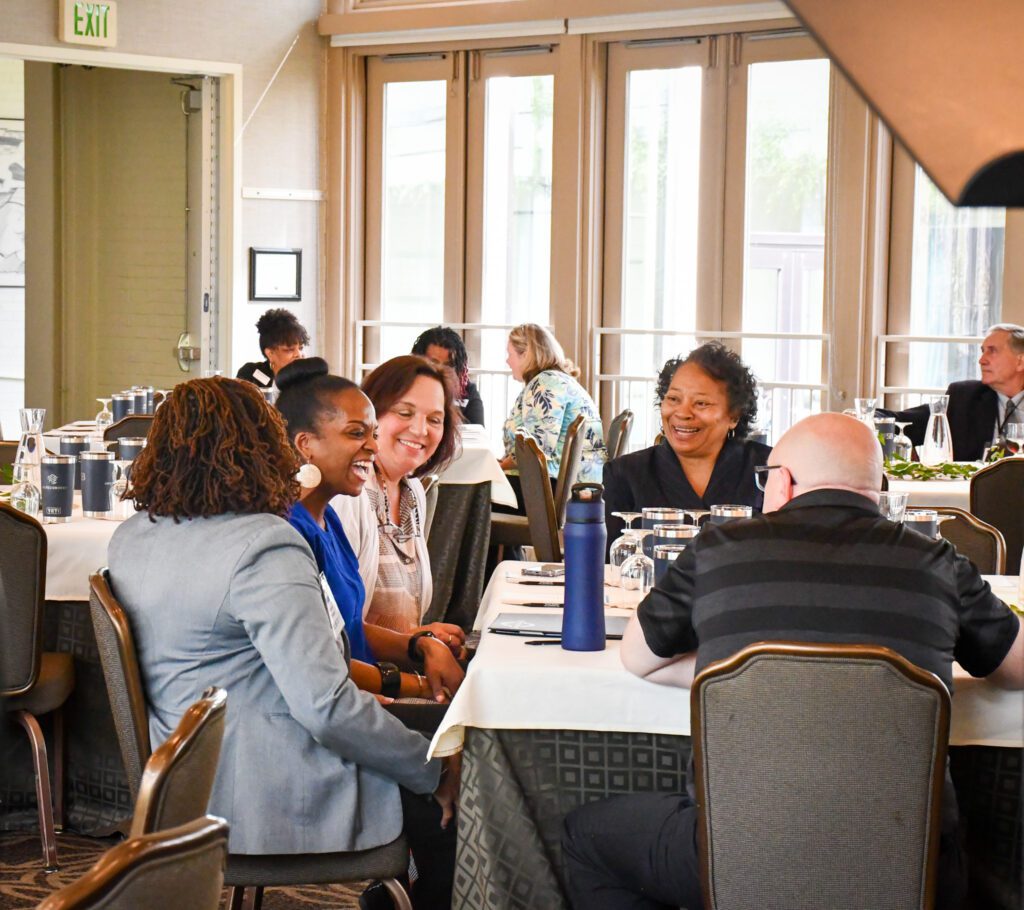
Editor’s note: The John M. Belk Endowment supports the work of EducationNC.
Recommended reading
